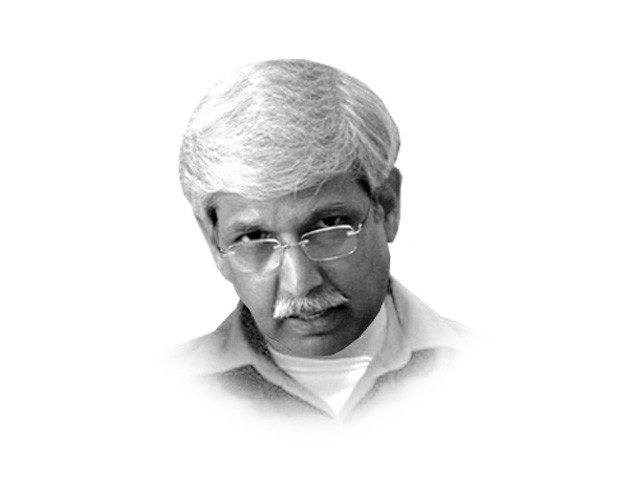Why a ‘bloody civilian’ cannot be at the ISI?
Since the ISI is an inter-services department, it is heavily populated by uniformed people.

Why a ‘bloody civilian’ cannot be at the ISI?
Now, why cannot a civilian head the ISI — because simply the ISI abbreviates ‘Inter-Services’ Intelligence. No, the ISI was not a devious conception to be used to upstage sitting political governments, and neither is it there to assist the military governments support nervy politicians to seek legitimacy and political support. It was meant to assist the military — yes, the military, and hence the Inter-Services nomenclature — in providing intelligence about perceived threats to the mission in war. As for Mr Shafi’s mentioning of MI5 (counter-intelligence), MI6 (intelligence), the BND, the DGSE, the CIA and the RAW all are arms of their respective civilian political governments and hence have civilian bosses. Mossad is a different kettle of fish — a halfway house in its mission; part military, part civilian — and that is why it is mostly commanded by military men. The ISI is only military but a twist of fate brought it under the Cabinet Division of the Government of Pakistan, meaning the prime minister.
The ISI, formed in the 1950s, was initially commanded by a colonel with the mission and objective to assist the armed forces in their war mission by providing them intelligence on the enemy. The colonel became a brigadier under Ayub Khan and its mission stayed the same. Around this time, despite martial law, which was first imposed in 1958, the dirty political legwork was restricted to the Intelligence Bureau and before it to the Special Branch, both civilian entities with officers mostly pulled out of the Police Service of Pakistan.
Come 1973; along with the birth of a new Constitution came the repositioning of the ISI under Prime Minister Zulfikar Ali Bhutto. That is also when its political wing was set up. Prime Minister Bhutto did some more restructuring, too, to the military system and the military adjusted well to these changes.
Between 1972 and March 1973, there was a major mutiny in the armed forces that rebelled against the leadership, both political and military, whom the rebels held responsible for the dismemberment of Pakistan. The rebellion, fairly advanced into its planning stages, was infiltrated and exposed, and all culprits held and punished with long banishment. Raja Nadir Parvez, a former military man and a current politician was a part of this largely popular group. This is when the military intelligence agencies acted to save a political government.
Since the ISI is an inter-services department, it is heavily populated by uniformed people. A small percentage, probably much lower than 30 per cent, is civilian and that too because they provide the essential elements of continuity to very essential work in support of the military mission — most others are on rotational assignments except in the past few decades where a core uniformed group has come into place for the sake of continuity. The ISI, as its prime mission, supports the offensive operational role of the Pakistani military that remains crucial to its overall mission. How the ISI gets introduced, however, to our people is as the ‘deep state’. Why one may ask and that will always remain a million-dollar question.
Two military men have also contributed to bringing the ISI into disrepute — Ziaul Haq and Pervez Musharraf — when both tended to use the agency to bolster their political standing through manipulation of the political environment. Air Marshal Asghar Khan’s case, pending in the Supreme Court, has enough fat on it to prove such a contention.
What then is the solution? The answer: disassociate the ISI from any political work. That will mean moving it back to the military in an organisational correction and tasking it only with its original foundational purpose. Under the current structure, it could easily move under the chairman joint chiefs as an inter-service entity. As for the political leadership, if it still needs to manipulate the political environment, the task can be given to the Intelligence Bureau. A ‘bloody civilian’ may still not be able to head the ISI.
Published in The Express Tribune, January 2nd, 2012.














COMMENTS
Comments are moderated and generally will be posted if they are on-topic and not abusive.
For more information, please see our Comments FAQ